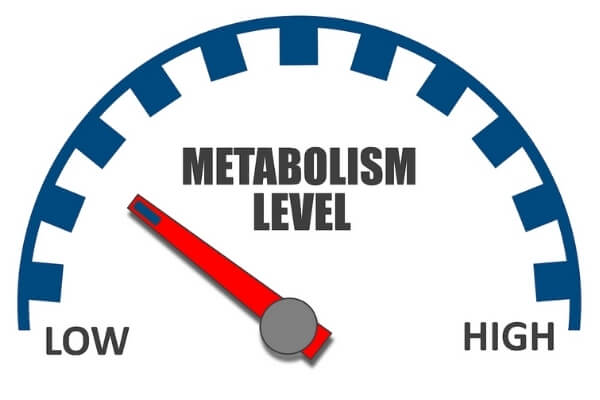Metabolism is the term given to all processes by which your body converts food into energy. The metabolic rate is the speed at which your body burns calories. Your BMR (basal metabolic rate) is the rate at which your burn calories on essential body functions such as breathing. If you don’t exercise regularly, you’ll lose around 0.25 kg (1/2Lb) of muscle every year after your late twenties. When you lose muscle you BMR drops about 2% every decade, so you burn les calories. You can prevent age –related muscle loss with weekly strength training.
STRATEGY:
- Exercise – higher intensity exercise increases post-exercise oxygen consumption ‘after burn’ and comes from fat stores.
- Add muscle – regular weight training will raise your RMR. Adding two pounds (1kg) of muscle burns on average an extra 65 calories a day. That’s 2015 calories per month, equivalent to losing 1/2lb (0.25 kg) of fat.
- Eat small meals often throughout the day – eat regularly and frequently to increase the metabolic rate. Plan three meals and two snacks a day spacing them at 2 -3 hours intervals.
- Hydrate – drink at least 1.5l of water a day. Dehydration slows down the fat-burning process.
- Avid skipping meals and don’t leave more than five hours between meals.
- Eat protein – with every meal, while eating protein boosts your metabolism. Up to 20% of meal calories may be burned off as heat. It’s also the most satisfying nutrient so helps stop overeating.
- Eat breakfast – it kickstarts your metabolism. For sustained energy combine carbohydrates and protein like eggs on toast or porridge.


